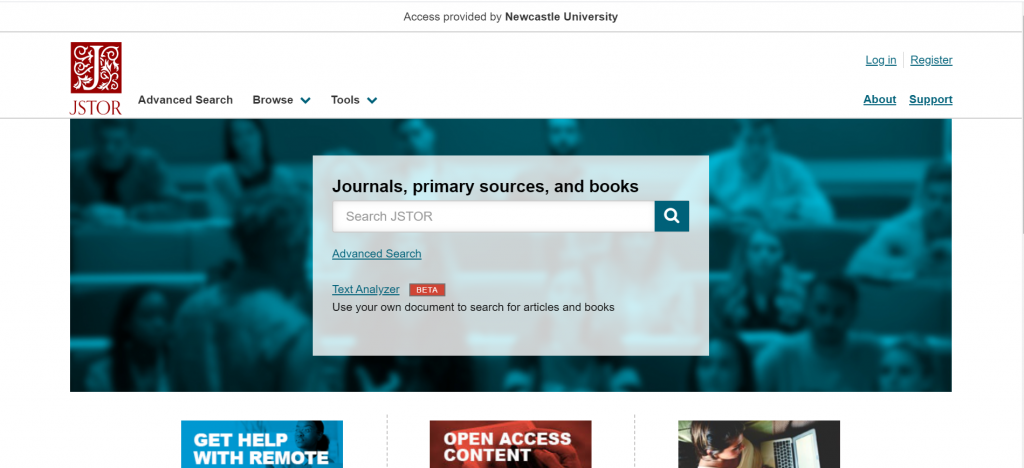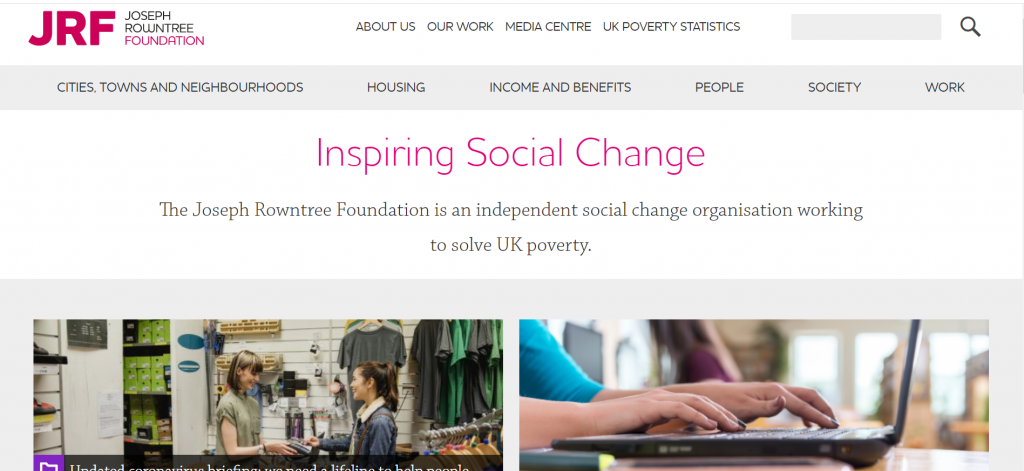New to the University or just wanting a handy list of places to search for Sociology information. Then here are some of our suggestions to help you find the information you need.
1. Library Search for ebooks and articles
Whether you are on or off campus you can access the full collection of ebooks, electronic journals and professional magazines, newspapers, conferences and more, from Library Search.
We’ve put together a page of tips and help videos all about Library Search on our finding information skills guide .
To find academic journal articles from across our collection that match your topic keywords, use the everything search option and filter your results on the left to peer-reviewed journals.
2. Your Subject Guide
The Subject Guide for Sociology draws together in one place, the resources available from the library to help you with your academic work. Use the Journals and Database page to access subject databases such as Social Sciences Premium Collection, Scopus and JSTOR.
You can contact the Liaison Team for one-to-one support or send your questions to Library Help, where there are staff logged into our live chat service, 24/7.
Between Library Search and your Subject Guide, you will be able to find excellent information to use in your academic essays, but there are many other resources you may want to try.
3. Social Sciences Premium Collection
The Social Sciences Premium Collection is a brilliant place to start if you would like to refine your results to sociology and the social sciences, while still searching broadly across different information types. It is a collection of social sciences databases, covering a range of information types including articles, reports, conference papers and theses, so you are able to find results that match your keywords from a variety of global sources.
Find out more about the Social Sciences Premium Collection, how to search it successfully and use the advanced features in the video guide below. It is a brilliant resource for sociology and excellent to use for any academic assignment.
4. JSTOR
JSTOR is a full-text collection, giving you online access to scholarly journals, books and book chapters in the arts, humanities, and social sciences.
It has basic and advanced search options that allow you to search by topic keyword, author, subject area, title or publisher

5. Scopus
Scopus is a large, multidisciplinary database, which indexes peer- reviewed journal articles, books, book chapters, conference proceedings and trade publications.
One of the main advantages of using Scopus is that it provides a lot of useful information about the articles it indexes. This includes full reference lists for articles and cited reference searching, so you can navigate forward and backward through the literature to uncover all the information relevant to your research.
You can also set up citation alerts so you can be informed of new, relevant material automatically. Other useful tools include citation overviews, author and affiliation searching, visual analysis of search results, a journal analyser, and author identifier tools (if you are interested in publishing work).Watch this video from Scopus about how to expand your search from a known article reference.Watch this video from Scopus about how to expand your search from a known article reference.
6. Government publications
Government publications provide information in a variety of subjects. Statistics, White Papers, Parliamentary Bills and a whole range of Official Legislation published by the Government. The provide a good, reliable, source of accurate statistics, and can give support to your argument in essay topics.
We have put together a resource guide for government publications that will give you quick access to the United Kingdom gov.uk publications search and the Office For National Statistics, European and international official publications.
7. OECD iLibrary for statistics and global reports.
OECD iLibrary is the online library of the Organisation for Economic Cooperation and Development (OECD) and gives you access to books, analytical reports and statistics, covering a broad range of topics relevant for studies in sociology.
OECD iLibrary is certainly worth searching to provide reputable supporting information for your academic work. The Social Issues, Health and Migration section would be a good place to start.
8. Statista for easy statistics and global outlook
Statista is an extensive statistics platform covering over 1.5 million data sets. It includes reports, statistics and forecasts on a range of topics. So if you want to know which social media platforms are most popular across the globe, compare homelessness statistics, explore education trends or how many people read every day, Statista is a brilliant place to start.
Statistics and reports can be exported in a range of formats including images and PowerPoint, giving you flexibility to include the visuals in your assignments. The statistics source is included, giving you the information that you need to cite it successfully.
You will find a similar sources on our Statistics and Market Research resource guides.
9. Current newspapers with LexisLibrary
Newspapers are an excellent resource to explore, to provide a range of perspectives on a topic. You can find opinion pieces, social commentary and identify trends in public opinion.
We have a huge range of newspaper archives, historic newspapers and international sources such as Nexis that can mostly be access online and off campus. Our Newspapers resource guide collates all of our resources and will guide you through how where to look.
LexisLibrary is an excellent place to start. It provides access to UK national and regional newspapers, from the 1990s to today. It includes the copy text without the images or formatting and all of the details you need to create a citation are on the article page.
Once you have followed the Library Search link to access Lexis, make sure you click on News at the top of the page for full text access to all UK publications.
As so many articles are published every day, you will need to refine your searching using date ranges, combined keywords or by selecting specific newspapers or publication type (i.e. broadsheet or tabloid).
Remember to use your critical skills when using newspapers however, and watch out for Fake News. They are biased sources and are best used in balance with other sources. You can find our tips on our Evaluating Information skills guide.
10. Box of Broadcasts
Box of Broadcasts can be used to access TV and radio broadcasts from over 65 channels, including most of the UK’s freeview network, all BBC TV and radio content from 2007, and several foreign language channels. It’s a great resource to use to find documentaries or critical opinions.
You can view archived programmes, record new ones, create clips and playlists and see transcripts to help with citation and translation. You can also search for other user’s public playlists to help you in your own search.
Unfortunately, Box of Broadcasts is not available outside the UK.
11. Joseph Rowntree Foundation
The Joseph Rowntree Foundation is a British social policy research and development charity, that funds UK-wide research and development programs. It aims to understand the root causes of social problems, and how social needs can be met in practice. The charity produces excellent topical research reports on cities towns and neighborhoods, housing, income and benefits, people, society and work.

12. British Library Social Sciences Blog
Written by the Social Science team at the British Library and guest contributors, it gives insight into their work, projects they are involved in as well as events, interesting resources and research methods related to the social sciences.
There is some great content on the blog and they run free, online short courses, with recent topics including things like propoganda and research methods for historical, society focused, research. This is definitely a blog worth bookmarking.
13. Mass Observation Online
This a major resource for British social history from 1937-1967. It contains material generated by the Mass Observatihttps://libsearch.ncl.ac.uk/permalink/f/1jraif3/NCL_ALMA21112401630002411on social research organisation, including all the day surveys, diaries and subject directives from 1937-1967, a wide range of themed topic collections, together with other material such as images and essays.
The online exhibitions are an accessible way into the collections and highlight the wealth of information and documents available in the database.
To get started, browse by topic and you will quickly get a sense of the range of information that would be useful for your written assignments
